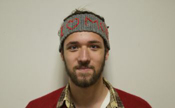 When Dzokhar Tsarnaev, one of two brothers believed to have committed the bombing of the Boston Marathon, was first apprehended, the decision was made to not read him his Miranda rights, which include the right to an attorney and the right to remain silent, invoking a so-called “public safety exemption.”
When Dzokhar Tsarnaev, one of two brothers believed to have committed the bombing of the Boston Marathon, was first apprehended, the decision was made to not read him his Miranda rights, which include the right to an attorney and the right to remain silent, invoking a so-called “public safety exemption.”
This public safety exemption comes from a 1984 Supreme Court case. The Court emphasized that this exemption should only be applied very narrowly – in that case, to find a gun that had been dropped somewhere in a supermarket, or, hypothetically, questioning a terrorist on how to disarm a bomb.
It should only be applied in these kinds of extreme cases, and not used to indefinitely question a suspect.
We need to carefully examine the usage of the public safety exemption in this case to ensure that the rights of an American citizen were not violated.
CNN reports that Tsarnaev is now communicating with police by nodding his head, and was read his Miranda rights when he was charged Monday.
The question still remains, however, as to how much Tsarnaev was questioned before being read his rights and whether his answers will be used against him in court. It is critical that he was read his rights as soon as it was ascertained that there was no current danger to the public.
Although he may have committed despicable acts, he has rights as an American citizen, and those rights should not be trampled.
The American Civil Liberties Union has issued a statement, which reads in part “every criminal defendant is entitled to be read Miranda rights. The public safety exception should be read narrowly. It applies only when there is a continued threat to public safety and is not an open-ended exception to the Miranda rule.”
This is absolutely spot on. ThinkProgress reports that, in the past, the FBI has applied the public safety exemption liberally when dealing with terrorists, and has extended the definition of “current danger” to encompass situations which are not truly imminent but rather hypothetical future events. This is unacceptable, however helpful it might be in gathering information.
We cannot deprive a person of his or her rights if there is no evidence that more Americans are in danger. To quote from the ACLU statement, “We must not waver from our tried-and-true justice system, even in the most difficult of times. Denial of rights is un-American and will only make it harder to obtain fair convictions.”
Vashaw, a sophomore mathematics major from Apex, is an opinion writer.

